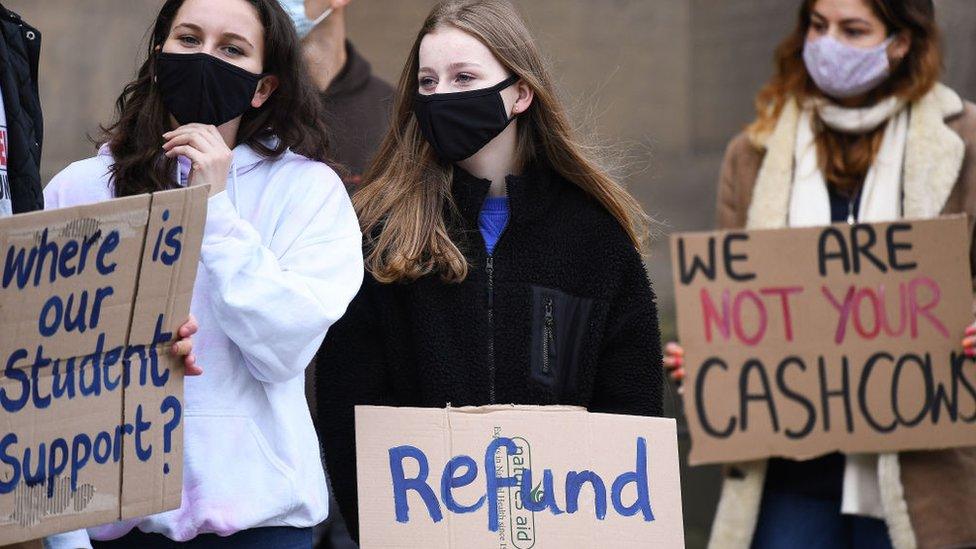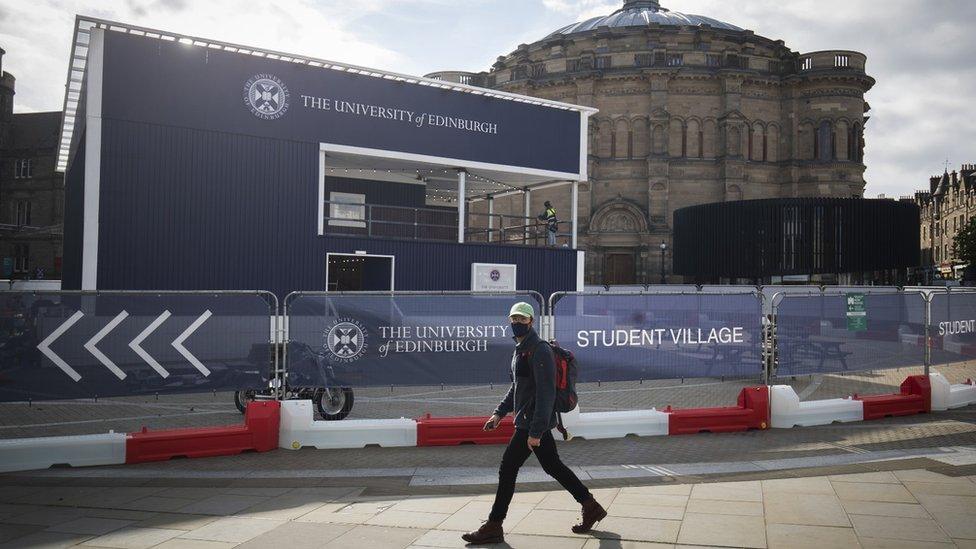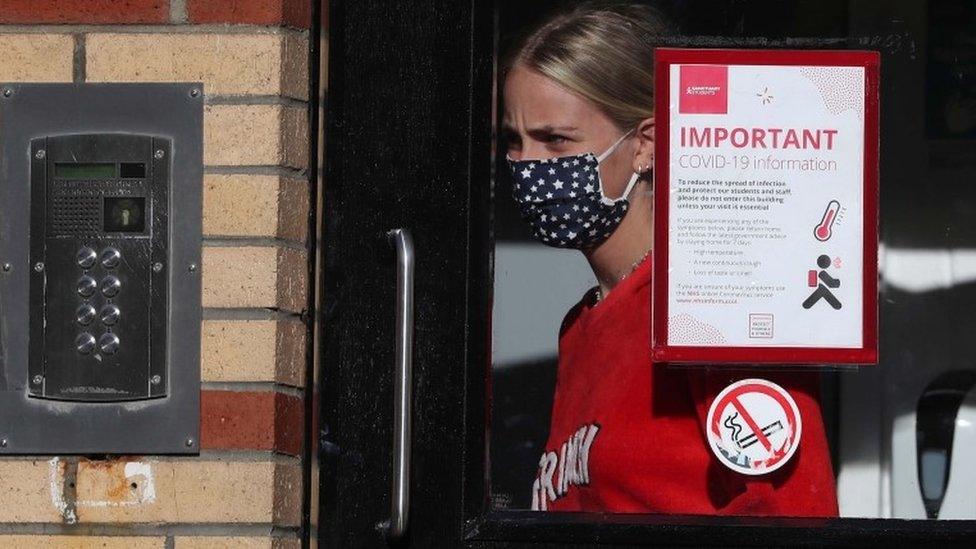Covid in Scotland: Student call for more government support
- Published

Edinburgh University students held a protest in October
The leaders of all of Scotland's student associations have written a joint letter to the first minister asking for more substantial support.
They want fees to be reimbursed, an expansion of hardship funding and compensation for rental accommodation.
The letter is co-signed by 60 senior representatives of student associations across Scotland.
The Scottish government said it was continuing to look urgently at issues surrounding the return of students.
They were told that the return to Scottish universities was delayed until at least the end of February because of the spread of Covid.
Apart from compensating students, the National Union of Students Scotland (NUS Scotland) letter also calls on the Scottish government to ensure that no student will be adversely affected by the changing circumstances. It also asks for more help for students to access resources digitally.
The student leaders have also asked for a "no detriment" policy that would offer flexibility if students fail to do very well in their exams.
Earlier in the month, students were asked not to travel back to university until face-to-face teaching resumed. This means the majority are not living in private rental accommodation or accommodation provided by the universities.
'Postcode lottery'
The letter states: "Without significant intervention from the Scottish government, it will leave a postcode lottery as accommodation providers and institutions themselves decide individually if students are entitled to refunds, how much compensation they will be offered, and for how long.
"This decision will have major cost implications at a time when students are already under serious financial pressure."
The letter also points out that some students are parents who have home-schooling responsibilities, while others are carers.
"Through our research, we know that students' mental health is declining, and many have struggled with learning online," it says. "The digital wealth divide means that a significant percentage of our poorest students have lost more teaching time than other students because of delays in accessing laptops, software and wifi.
"We believe all institutions should adopt a no-detriment approach to assessment, so no student is academically disadvantaged as a result of this pandemic."
Financial hit
The timing of the letter coincides with a survey by NUS Scotland which shows that many students have taken a financial hit because of the pandemic.
It suggests that finding work has been increasingly difficult for students, with almost 60% of them not working - double the number in July.
Caelan de Jager, an Australian international student at the Royal Conservatoire, told BBC Scotland he may have to drop out.
He said: "Unfortunately, if I can't get any funding from the Australian government later on this year or find a job by summer, it will be pretty hard to keep paying for tuition. It will probably be quite hard to keep studying."
'No direct role'
A Scottish government spokeswoman said: "We continue to look urgently - working with institutions, unions and student representatives - at various issues surrounding the return of students to their studies, accommodation and campuses.
"We have already introduced notice-to-leave periods for students in purpose-built student accommodation. However, we have no direct role in the provision of student residential accommodation, whether that is managed by universities, colleges or private sector organisations.
"These are judgments that universities, colleges and providers have got to make in contact and consultation with their student community, and it's right and appropriate that that is undertaken.
"We encourage accommodation providers to come to an appropriate resolution of issues around tenancy agreements and rent payments. Any student facing additional hardship as a result of Covid-19 should apply for financial support from the FE/HE Discretionary Funds."


- Published8 January 2021

- Published28 September 2020

- Published25 September 2020
